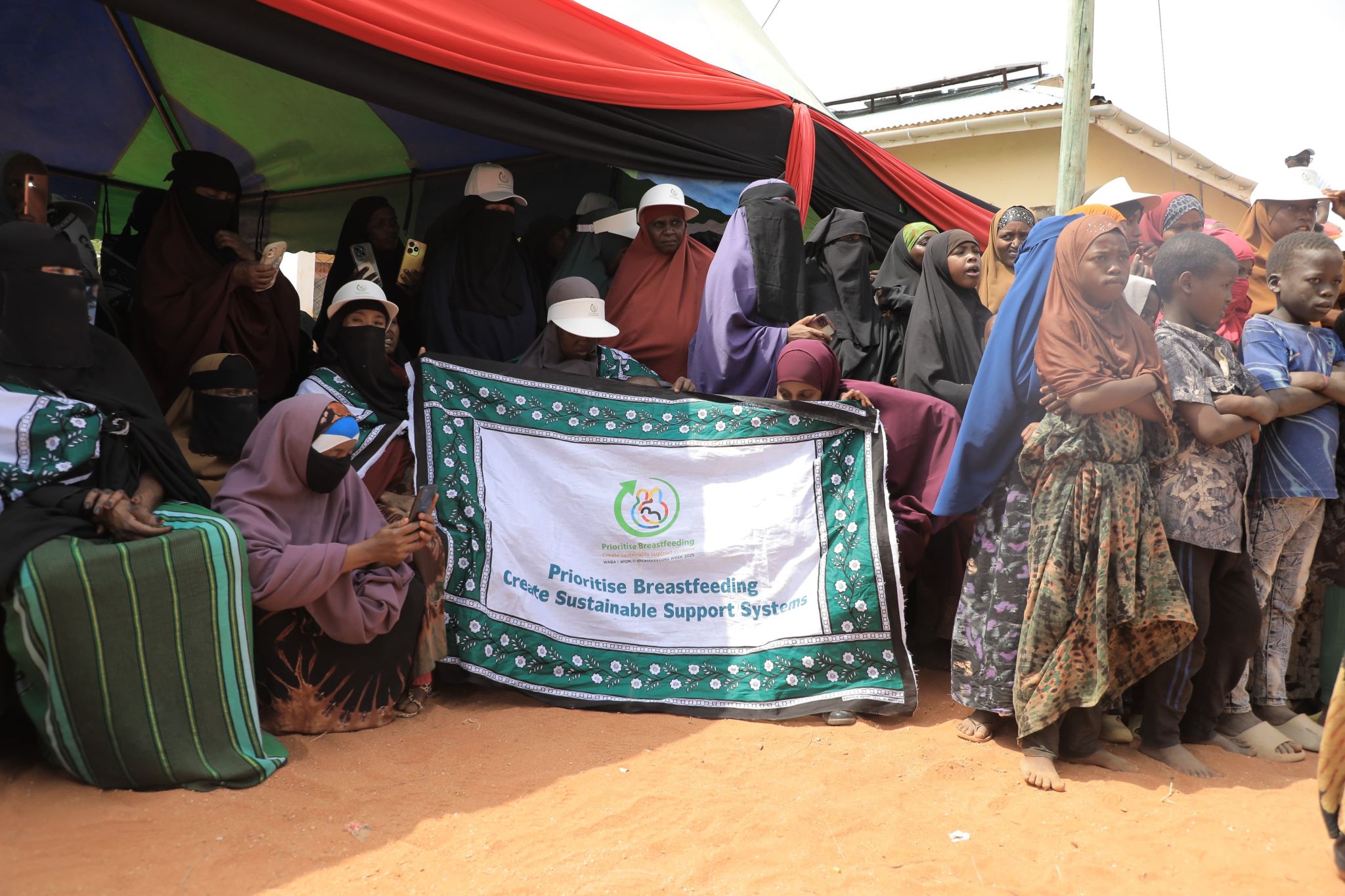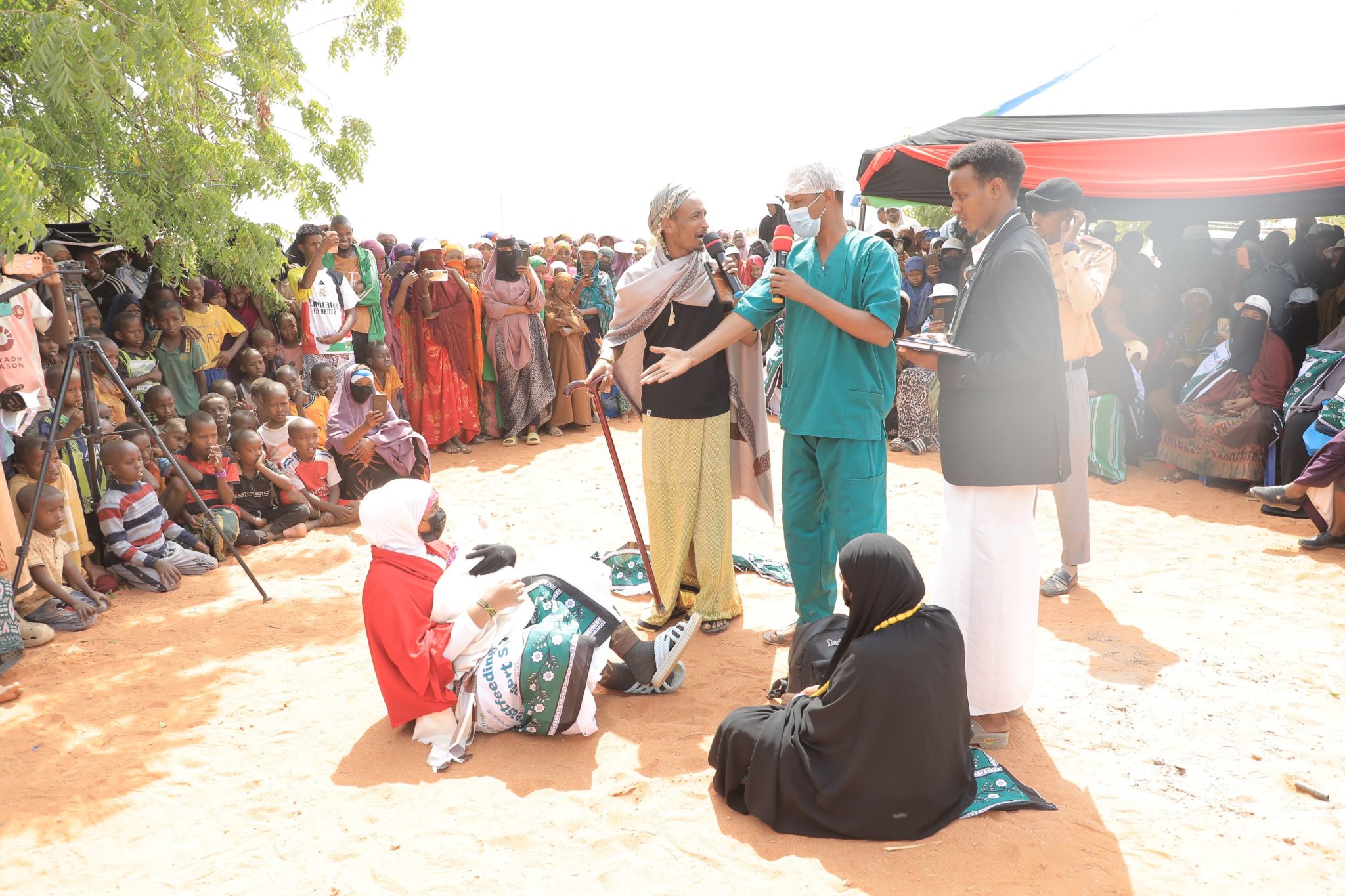Global health agencies are calling for urgent investments in breastfeeding support systems, particularly in crisis-affected and underserved regions like Kenya’s arid and semi-arid lands (ASALs), where malnutrition remains alarmingly high.
During this year’s World Breastfeeding Week (August 1–7), themed “Prioritize Breastfeeding: Create Sustainable Support Systems”, the United Nations, World Health Organization (WHO), and UNICEF renewed their appeal to governments, institutions, and communities to ensure that breastfeeding is treated as a collective responsibility rather than a personal struggle.
According to WHO, exclusive breastfeeding in the first six months of life stands at 48% globally, an improvement, but still well below the World Health Assembly target of 60% by 2030.

The agencies warn that millions of mothers, especially in fragile and remote areas, face barriers such as lack of privacy, poor public facilities, social stigma, weak policies, and under-resourced health systems.
“Breastfeeding is a human right, not only for mothers but for every child. It is one of the most cost-effective interventions to prevent malnutrition and reduce child mortality,” the UN stressed in its statement.
In Kenya’s Mandera Triangle, where Global Acute Malnutrition (GAM) rates remain among the highest in the country, breastfeeding is more than a cultural practice, it is a life-saving act.
The July 2024 SMART survey reported GAM at 20.6%, stunting at 15.5%, and underweight rates at 19.7% among children under five.
To mark World Breastfeeding Week 2025, the community of Neboi in Mandera County held a solidarity event at the Neboi Health Centre, organized by the County Government of Mandera, RACIDA, and Concern Worldwide, with support from Irish Aid through the Hanaano Program.
The Hanaano Project has reached over 250,000 people in Mandera with breastfeeding education, nutrition messaging, and peer support groups. From April to June 2025 alone, health facilities recorded 2,600 severe acute malnutrition (SAM) admissions and 5,300 moderate acute malnutrition (MAM) admissions, underscoring the heavy burden on local health systems.
Despite these challenges, there are encouraging signs: the same SMART survey found that 72.8% of children in Mandera are still breastfed at age two, and 92.9% of infants aged 6–8 months had been introduced to appropriate complementary foods.
“Breastfeeding is a national investment in the country’s future,” said the Assistant County Commissioner at the event.
WHO data reveals that only one-fifth of countries include infant and young child feeding training for doctors and nurses, meaning most mothers leave hospitals without proper breastfeeding guidance.
In ASAL areas, where health facilities are few and far between, this gap is even wider.
Investment remains critically low, despite evidence that every dollar invested in breastfeeding generates $35 in economic returns. WHO and UNICEF are urging Kenya and other countries to: increase national budget allocations for breastfeeding programs, ensure all health service providers are trained in breastfeeding support, including in emergencies, integrate breastfeeding counseling into routine maternal and child health services, strengthen community health systems to provide ongoing, accessible support for up to two years and beyond and enforce the International Code of Marketing of Breast-Milk Substitutes.
While structural reforms are essential, everyday actions can make an immediate difference: fathers protecting mothers’ time and space to nurse, employers providing lactation rooms and flexible schedules, public transport operators prioritizing seats for nursing mothers, and community leaders challenging stigma.
As RACIDA and partners emphasized in Mandera, breastfeeding is not just about nutrition, it is about survival, equality, and opportunity, especially for children in Kenya’s most vulnerable regions.

